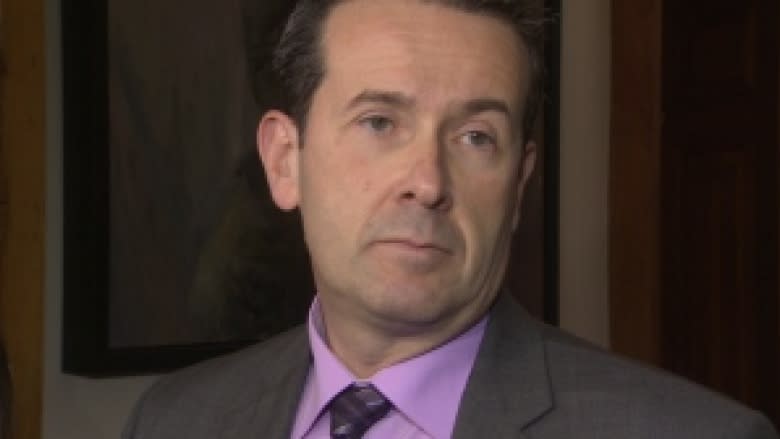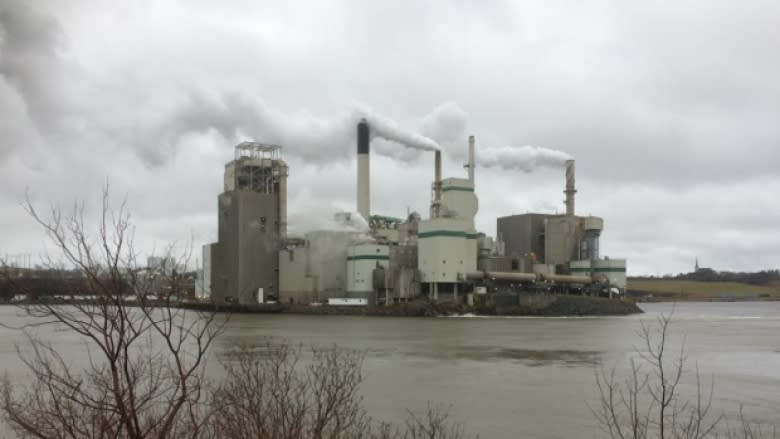Minister adamant carbon plan satisfies federal rules — despite deviations
The New Brunswick government is sticking to its story that its climate plan complies with federal requirements — even as Ottawa drops hints that failure to do so could cost the province a lot of money.
Environment Minister Serge Rousselle was reacting to new details of the federal "backstop," the carbon pricing that the Trudeau government will impose on provinces that don't go along with its plan.
Those details, released Monday, include a suggestion that in recalcitrant provinces, Ottawa could return carbon-price revenue directly to individuals rather than to provincial governments.
That in turn would complicate New Brunswick's plan to redirect gas-tax revenue into a fund for climate-change projects. The province expects that revenue to reach $180 million by 2022.
But Rousselle brushed off that scenario Tuesday, saying that despite two apparent violations of the federal plan, the Trudeau Liberals will eventually accept the Gallant Liberals' policy.
"I've said a number of times that we're confident when the moment comes to look at the New Brunswick plan, the federal government will see we're meeting their requirements," he told a committee of MLAs studying his climate-change bill.
Opposition Progressive Conservative MLA Brian Keirstead responded, "I admire your optimism because it seems to be going counter to what the federal minister has been saying up to this point."
Rousselle announced last month that rather than impose a new carbon tax at the gas pumps, the province will shift a share of the existing 15.5-cent-per-litre gas tax into its climate fund.
Federal Climate Change Minister Catherine McKenna responded immediately that her plan requires an additional cost to carbon dioxide, not a shifting of the existing cost.
The provincial plan also exempts natural gas from the carbon price, even though McKenna's plan requires that it be taxed.
Provincial deadline
Provinces must officially submit their plans to Ottawa by Sept. 1. Those that aren't complying with the federal guidelines will see a carbon tax imposed on Jan. 1, 2019.
Keirstead spent part of Tuesday's committee session trying to get Rousselle to talk about how that would look.
"How would they impose a levy?" he asked. "How would that actually work in a province like New Brunswick?"
But Rousselle returned again and again to his insistence that Ottawa will approve his system.
Millions of dollars is riding on whether the minister is right: the shifted gas tax is forecast to collect $37.4 million for the climate fund in 2018-19, rising to $180.2 million in 2022-23.
But if that shift is rejected by Ottawa, it could impose its own carbon tax and rebate the money directly to New Brunswickers.
Prime Minister Justin Trudeau told The Canadian Press on Monday he'd like to see federal carbon-tax rebates go toward "hopefully compensating those who are more vulnerable and less able to find alternatives" to using fossil fuels.
And McKenna's office told the news service that only provincial governments that voluntarily adopt the federal system will be guaranteed the right to spend the money the way they want.
Industrial levy
Rousselle pointed out Tuesday that the province is voluntarily adopting one part of the federal backstop: an industrial levy on large emitters.
Those operations will have to reduce their emissions to 30 per cent below the average in their sector to avoid paying a carbon level, according to federal draft legislation released Monday.
Those that go below 30 per cent will be able to earn credits they can sell to heavier emitters.
Companies at "a higher risk" of being made uncompetitive because of the levy could be exempt, according to a federal background document.
Rousselle said McKenna has said the industrial levy revenue would be sent to the provincial government to be spend.
"Those are the indications we've had so far."
The federal draft legislation would apply to industrial emitters of 50,000 tonnes of carbon dioxide or more.
According to 2015 figures from the Conservation Council of New Brunswick, that would apply to 10 emitters in New Brunswick: two NB Power generating stations, the Irving Oil refinery, the Emera Bayside Power plan in Saint John, the Glencore Canada smelter in Belledune, the A.V. Nackawic and Twin Rivers mills, and three J.D. Irving Ltd. mills.
J.D. Irving vice-president Mary Keith said Tuesday that the company is reviewing the new federal details and had no comment on them.
She said the company's pulp and paper emissions have cut their carbon footprint in half since 1990. She also said JDI-managed forests absorb more carbon than its mills emit.



